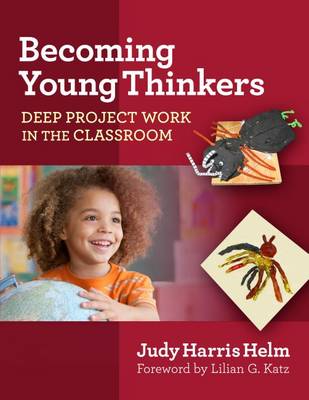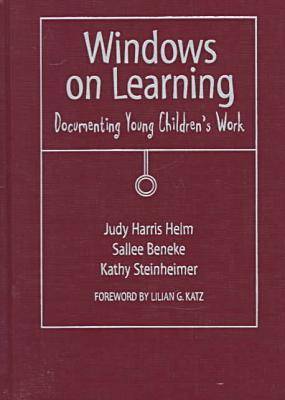Early Childhood Education
1 primary work • 3 total works
Book 78
This work aims to illustrate how children - even those considered "at-risk" - may benefit from the exploratory and child-initiated nature of project investigations in order to achieve mastery of basic literacy skills. It also presents student-initiated learning as a starting point for dynamic and responsive teaching. The story of how projects emerge, develop, and culminate is told through a combination of teacher interviews and vivid accounts of classroom practice. Building upon inclusionary and child-centred practices, the authors offer a much-needed perspective on the pre-primary years. Key features include: an emphasis on how teachers solve the practical problems of doing projects with young children, including selecting topics, organizing the classroom, setting up field visits, encouraging children to represent what they are learning, and involving parents; chapters written from practice, including some in full colour; examples of children's art and writing; classroom materials; and a step-by-step guide for teachers to use in guiding and documenting projects.
Continuing the exploration of project work in the author's bestselling book, Young Investigators, Second Edition, this book is designed for preschool through primary grade teachers who know how to do project work but are ready to move to the next level. Focusing on how children become young thinkers, the book begins with mind, brain, and education science and instructional guidelines for all learning experiences, and then connects these to the rich foundation of the project approach. Helm provides specific strategies for deepening project work, including how to select meaningful topics, plan for projects, integrate standards (including the Common Core), support children's questioning, create provocations to promote engagement, and help children represent their ideas. This practical resource will extend practitioners' knowledge about project-based learning so they can move beyond the basics to create project work that is more engaging, meaningful, and productive.
Windows on Learning
by Judy Harris Helm, Sallee Beneke, and Kathy Steinheimer
Published 1 November 1997
The authors developed an approach for thinking and communicating about documentation and then explored its use in early childhood programs, including the schools of Reggio Emilia. The result is a framework, collection system, and display method that works in U.S. schools. Methods are applicable to many different curriculum models, including thematic teaching and the project approach. Features extensive examples of children's and teachers' work.


